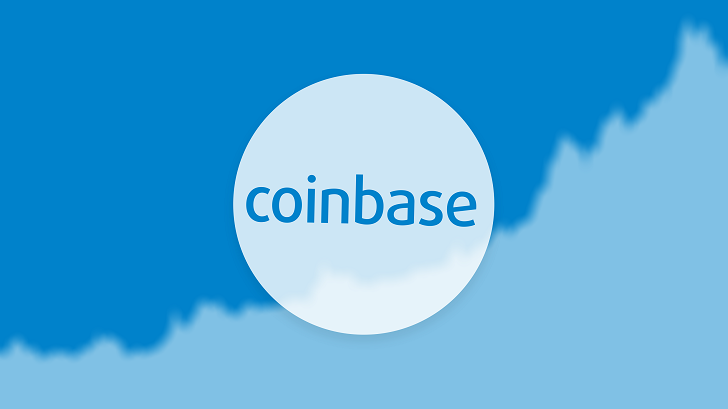Cryptocurrency is a massive market worth more than $4 trillion according to Forbes. That kind of market value has interested even the most cautious investors. So it’s no surprise online brokers that cater to every type of investor now want to appeal to crypto traders. One of the most notable online brokerages for cryptocurrency is Robinhood, which positions itself as a user-friendly platform for a range of investments. On the other hand, a dedicated crypto investor may be more interested in a crypto-focused platform like Coinbase. Here is what you need to know about Robinhood and Coinbase to make that decision.
A financial advisor can provide insight into how cryptocurrency fits into your portfolio and long-term investment goals.
Overview of Robinhood vs. Coinbase
While Robinhood offers cryptocurrency trading through an account with Robinhood Crypto, it’s not the platform’s main focus. It’s an online brokerage that handles popular investment assets including U.S. listed stocks, options and exchange-traded funds (ETFs). It appeals to users with its minimal fees and mobile interface. That ease-of-use can set it apart from other platforms, in particular crypto-dedicated companies. Although its simple interface has also gotten Robinhood into hot water for making investments appear too easy-breezy and without consequences and risk.
Coinbase itself suffers a little from its excess complexity, similar to its favored asset. Although the company has been around since 2012, it recently made headlines in April 2021 when it debuted as the first major cryptocurrency to go public on the U.S. stock market. So, it’s one of the most popular options out there. The interface itself is user-friendly and comes with robust research tools. It also comes with a complicated fee structure.
Robinhood vs. Coinbase: Fees
If you’re looking for a low-cost option to trade, then Robinhood is undoubtedly the winner. It has a straightforward fee system and comes with minimal charges. Using Robinhood, you can trade stocks, options, ETFs, and cryptocurrencies free of commission. It also has no account management fees, like inactivity or moving your money around. The premium account, Robinhood Gold, costs $5 per month. This service opens up margin trading, which requires a portfolio value of $2,000 (not including any cryptocurrency positions).
It’s important to note before we discuss Coinbase that Robinhood does charge payment for order flow. The cost depends on the trade and is automatically added to the total, which makes it difficult to compare crypto trading expenses plainly.
Robinhood is known for its simple and understandable usage prices. On the other hand, Coinbase’s fee structure is more complex and expensive. There are also two account types to choose from: the regular version and Coinbase Advanced Trade
Coinbase’s standard account charges a fee around 0.5% of the spread on crypto sales and purchases. The exact price is hard to determine, though, since the market changes quickly. There is also a more significant fee based on how much you purchase and what type. This may come at a fixed rate or a varying percentage. For example, if the total transaction amount equals less than or equal to $10, then the fee is $0.99. That price is then compared to the variable expense. Whichever fee is greater is applied to your transaction.
For example, suppose you want to buy $50 of Bitcoin. The flat rate is $1.99. Since you’re trading in the U.S. and using a standard U.S. bank account for the purchase, the variable rate is 1.49%. That totals to around $0.74 cents. So, Coinbase would charge you the $1.99 flat fee because it is higher.
This fee scale completely changes when you upgrade to Coinbase Advanced Trade. There are no sign-up or holding fees with a Coinbase Advanced Trade account. It bases its trading fees on a maker-taker model and bases the percentage based on your position and price tier.
Robinhood vs. Coinbase: Services & Features

Robinhood functions differently than Coinbase. It allows investors to trade in standard assets like stocks and ETFs. However, the main point of comparison between the two is their cryptocurrency offerings.
In terms of numbers, Robinhood offers about 30 tradable coins. This includes the popular options of Bitcoin, Ethereum and two alternative cryptocurrencies called Dogecoin and Litecoin. By contrast, Coinbase gives market information and descriptions for more than 9,000 cryptocurrencies. However, support varies between the different cryptocurrencies, and fees depend on the asset, trader’s country, and payment method.
They both offer upgraded accounts. Robinhood Gold comes at a $5 monthly price and allows investors access to instant transfers up to $50,000, Level II market data, and margin trading. However, the interface stays relatively simple, and the analysis tools are minimal in comparison to other online brokers. In comparison, Coinbase Advanced Trade gives users detailed research materials and charts to help them make their trades. Coinbase also has its own crypto wallet and USD-backed stablecoin named USD Coin. The digital wallet is encrypted and allows users to withdraw, store, and trade their crypto.
Coinbase also offers a monthly paid subscription service similar to Robinhood Gold. Coinbase One is a $5 per month plan that includes 4.5% APY on the first $10,000 in your Coinbase account, staking rewards, and $500 in free trades a month.
Robinhood vs. Coinbase: Online & Mobile Experience
Both Robinhood and Coinbase offer interfaces that are user-friendly and relatively intuitive. In particular, Robinhood is well known for its simple mobile app. This platform is the origin point for the company. You can use it to make the same trades that are possible in the online format and access investment information. That includes charts, stock “collections,” and pricing data. It currently holds a 4.3 on Apple’s app store and a 4.2 on Google Play.
By contrast, Coinbase stands with 4.7 stars on Apple’s store and 4.4 on Google Play. It has a minimalist design that beginners can understand.
Robinhood vs. Coinbase: Supported Account Types
When comparing Robinhood vs. Coinbase, it’s important to understand what types of accounts each platform supports. This can make a big difference depending on whether you want to use crypto as part of a long-term investment strategy or simply as a trading asset.
Robinhood offers taxable brokerage accounts and some retirement savings options. That means you can buy and sell cryptocurrencies, stocks, ETFs, and options within a standard brokerage account, and access a traditional or Roth IRA that includes 1% contribution matching (3% for Gold subscribers).
Coinbase, by contrast, is a crypto-focused exchange, so it doesn’t directly provide traditional retirement accounts. For investors looking to integrate cryptocurrency into their long-term retirement savings plan, this limitation may be a drawback. However, Coinbase can be integrated with self-directed IRAs and certain custodial account providers through third-party partnerships. This allows investors to hold cryptocurrency in a tax-advantaged retirement vehicle, which could appeal to those who want crypto exposure alongside more conventional retirement assets.
Robinhood is better suited for those who want all of their trading in one place under a simple, taxable account. Coinbase provides more flexibility for dedicated crypto investors, particularly those who want the option of holding digital assets in self-directed IRAs for long-term tax advantages.
Who Should Use Robinhood?
Robinhood’s overall goal is to open trading up to a wider audience. It accomplishes that through its zero commission fees and user-friendly interface. However, there have been concerns about the platform within the recent year. Namely, the platform put a short squeeze on small investors purchasing GameStop shares back in January 2021. Essentially, it prioritized hedge funds that were experiencing loss over the success of the smaller investors.
The platform has also received criticism for its mobile interface, which contributes to a “gamification” of stock trading. The mobile app’s visuals have been compared to the fun and bright colors of a casino.These traits encourage users to make hasty decisions. Combined with cryptocurrency’s high-risk level, Robinhood may not be a great choice for a beginning investor.
Who Should Use Coinbase?
Coinbase, of course, will appeal to traders who either have experience with cryptocurrency vs. stocks or want to begin trading in it. The interface is clean and generally user-friendly. That can make a big difference to the beginning trader. Advanced crypto traders will also prefer the options for investment strategies and longer list of cryptocurrencies to invest in. It also rewards large trading with its discounted fee tier, but comes with a few considerable fees otherwise. So, if you are looking for low-cost trading you might want to look elsewhere.
Cryptocurrency is a high-risk investment. New traders should research whether it aligns with their financial goals and risk tolerance.
Bottom Line

Robinhood and Coinbase offer crypto trading with unique perks that may appeal to you. An average day trader with knowledge can use Robinhood’s potential, whereas an experienced trader who moves large amounts would benefit from Coinbase. However, even experienced traders should reevaluate their risk level and investment strategy before adding crypto to their portfolio due to its volatility. A financial advisor can help you learn more about different types of investments that may offer greater security in the long run. Still, each trader should make a decision for themselves.
Investing Tips
- A strong portfolio is a diversified portfolio. If you’re considering whether cryptocurrency is the right choice for your risk level, check out SmartAsset’s free investment calculator. This tool will project your investment’s future worth, which can help you determine if it’s “worth” it to you.
- If you are not experienced with cryptocurrency, investing in it can be challenging and confusing. However, you don’t need to make any decisions alone. SmartAsset’s free tool matches you with vetted financial advisors who serve your area, and you can interview your advisor matches at no cost to decide which one is right for you. If you’re ready to find an advisor who can help you achieve your financial goals, get started now.
Photo Credit: © iStock/hobo_018, © Coinbase, © Robinhood
